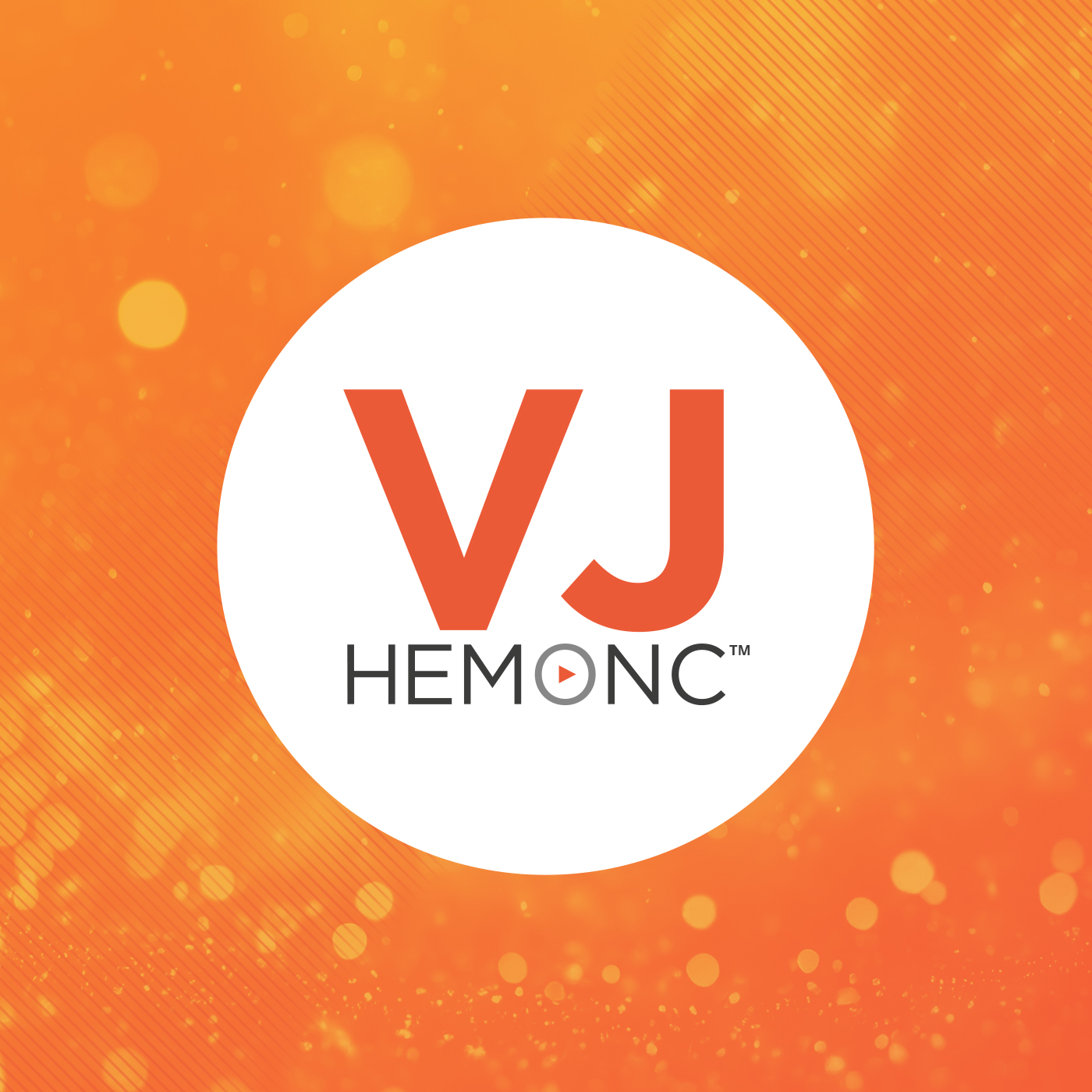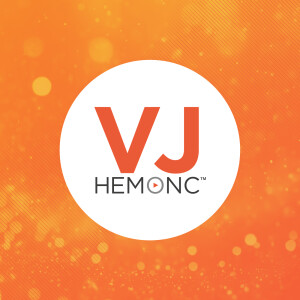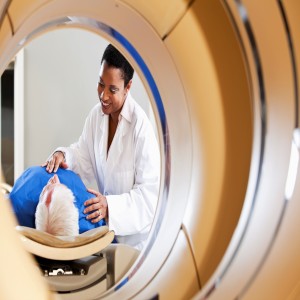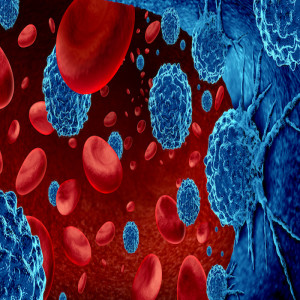
75.4K
Downloads
318
Episodes
The Video Journal of Hematology and Hematological Oncology (VJHemOnc) podcast covers the latest hematological oncology and hematology news from international experts – from leukemias, lymphomas, MDS and MPNs, to sickle cell, aplastic anemia and rare diseases. Made for healthcare professionals and researchers, we are a global, independent, open-access platform. Listen to the latest news, including cutting-edge trial updates, controversies and opinion. If you enjoy the podcast, please leave us a rating and review! For more news visit www.vjhemonc.com
The Video Journal of Hematology and Hematological Oncology (VJHemOnc) podcast covers the latest hematological oncology and hematology news from international experts – from leukemias, lymphomas, MDS and MPNs, to sickle cell, aplastic anemia and rare diseases. Made for healthcare professionals and researchers, we are a global, independent, open-access platform. Listen to the latest news, including cutting-edge trial updates, controversies and opinion. If you enjoy the podcast, please leave us a rating and review! For more news visit www.vjhemonc.com
Episodes

Friday Aug 27, 2021
Texas MPN Workshop 2021: updates on interferons for MPNs
Friday Aug 27, 2021
Friday Aug 27, 2021
Many clinical trials are currently investigating the potential benefits of interferons in the treatment of myeloproliferative neoplasms (MPNs), in particular for polycythemia vera, essential thrombocythemia and myelofibrosis. Interferon-alfa was originally explored for MPN treatment many years ago, however it’s frequent dosing and toxicity profile present barriers to widespread use. More recently, ropeginterferon-alfa-2b-vjft reported promising results for patients with polycythemia vera in the PROUD and CONTINUATION-PV clinical trials (NCT01949805; NCT02218047) and is now being reviewed for approval by the FDA, and pegylated-interferon-alfa has also demonstrated efficacy.
In this podcast, we hear from Richard Silver, MD, and Nicole Kucine, MD, MS, both from the Weill Cornell Medical College, New York, NY, who share the latest clinical updates on the use of interferons for the treatment of polycythemia vera and essential thrombocythemia, as presented at the Texas MPN Workshop: Second Annual Workshop and Meeting in 2021.

Wednesday Aug 25, 2021
EHA 2021: real-world data on myeloma, lymphoma and CLL
Wednesday Aug 25, 2021
Wednesday Aug 25, 2021
Real-world data gained through scientific studies is essential in the advancement of treatments for all hematologic malignancies. Historically, pharmaceutical companies have been restricted to randomized clinical trials as their only form of testing a treatment. However, due to technological advancement, there are now ways in which data from real-world treatment settings can be collected by clinical researchers. Real-world data is used to support decision making regarding the usage, overall benefits, and risks associated with specific drugs and therapeutic combinations.
In this podcast, David Miklos, BSc, MD, PhD, of Stanford University, Stanford, CA, Elena Zamagni, MD, PhD, of the University of Bologna, Bologna, Italy, Heinz Ludwig, MD, of the Wilhelminen Cancer Research Institute, Wilhelminenspital, Vienna, Austria, and Andrea Visentin, MD, PhD, of the University of Padua, Padova, Italy, discuss some of the latest real-world data to have been shared in the fields of lymphoma, myeloma and chronic lymphocytic leukemia (CLL), as presented at the European Hematology Association (EHA) Congress 2021.

Thursday Aug 19, 2021
Novel BTK inhibitors for NHL
Thursday Aug 19, 2021
Thursday Aug 19, 2021
Over the past two decades the treatment landscape for non-Hodgkin lymphoma (NHL) has rapidly evolved, with the development of Bruton’s tyrosine kinase (BTK) inhibitors making a particularly significant impact and opening the door to the possibility of chemotherapy-free regimens. In 2013, ibrutinib became the first BTK inhibitor to receive FDA approval for the treatment of follicular lymphoma, followed by approvals for Waldenström’s macroglobulinemia and marginal zone lymphoma in 2015 and 2017 respectively. Since then, the BTK inhibitors acalabrutinib and zanubrutinib have received FDA approval and many trials are exploring novel BTK inhibitors and combinations.
In today’s episode, Thomas Witzig, of the Mayo Clinic Rochester, Rochester, MN, Chan Yoon Cheah, of the Linear Clinical Research and Sir Charles Gairdner Hospital, Perth, Australia, Gilles Salles of the Memorial Sloan Kettering Cancer Center, New York City, NY, and Paolo Ghia of Università Vita-Salute San Raffaele, Milan, Italy, talk on the latest data from key clinical trials of BTK inhibitors for the treatment of NHL.

Wednesday Aug 18, 2021
Latest updates on T-cell therapies for non-Hodgkin lymphoma
Wednesday Aug 18, 2021
Wednesday Aug 18, 2021
Research into the treatment of non-Hodgkin lymphoma (NHL) has made great progress within the last decade, with clinical trials such as the TRANSCEND-OUTREACH-007 and ZUMA-12 studies successfully advancing into later phases. Although there are currently various approaches to NHL treatment, primarily employing chemotherapy, steroid medication and allogeneic stem cell transplantation, such approaches are not tolerated by all patients and may not achieve complete remissions, creating an opening for immunotherapies to address these challenges. Given the recent FDA approvals of chimeric antigen receptor T-cell (CAR-T) therapies such as idecabtagene vicleucel and lisocabtagene maraleucel, much attention has now turned to the potential of these novel cellular therapies for more effective treatment of NHL.
In this podcast, Jeremy Abramson of the Massachusetts General Hospital Cancer Center, Boston, MA, Sattva Neelapu of the University of Texas MD Anderson Cancer Center, Houston, TX, Stephen Schuster of the Perelman School of Medicine, Philadelphia, PA, Barbara Savoldo of the University of North Carolina at Chapel Hill, Chapel Hill, NC, Max Mamonkin of the Baylor College of Medicine, Houston, TX, and Susan Prockop of the Memorial Sloan Kettering Cancer Center, New York, NY, discuss the latest clinical updates on T-cell therapies for NHL, highlighting therapies such as lisocabtagene maraleucel and axicabtagene ciloleucel.

Tuesday Aug 17, 2021
Novel CD20/CD3 bispecific antibodies in NHL
Tuesday Aug 17, 2021
Tuesday Aug 17, 2021
Immunotherapies are showing increasingly promising results for the treatment of patients with non-Hodgkin lymphoma (NHL) and, in particular, bispecific antibodies have demonstrated promising clinical results in heavily pre-treated patients. Several bispecific antibodies have entered the early stages of clinical trials since the approval of the CD19/CD30 bispecific antibody blinatumomab, and recently CD20/CD3 bispecific antibodies have demonstrated encouraging response rates in patients with both aggressive and indolent NHL.
In today’s podcast, Stephen Schuster from the Perelman School of Medicine, Philadelphia, PA, Franck Morschhauser from Lille University Hospital, Lille, France, and Rajat Bannerji from the Rutgers Cancer Institute of New Jersey, Newark, NJ, discuss the latest data on CD20/CD3 bispecific antibodies for the treatment of patients with NHL, in particular talking on mosunetuzumab, CD20-TCB and odronextamab, previously known as REGN1979.

Monday Aug 16, 2021
Latest updates on CAR-T therapy for lymphoma
Monday Aug 16, 2021
Monday Aug 16, 2021
At present, four types of chimeric antigen receptor T-cell (CAR-T) therapy are FDA approved for specific types of lymphoma: for relapsed or refractory (R/R) mantle cell lymphoma, brexucabtagene autoleucel, for R/R follicular lymphoma, axicabtagene ciloleucel, and for some aggressive forms of non-Hodgkin lymphoma, axicabtagene ciloleucel, tisagenlecleucel and lisocabtagene maraleucel. Despite these approvals, progression of disease and toxicity remain unresolved concerns associated with CAR-T therapy which are currently being investigated.
In this podcast, Caron Jacobson of the Dana-Farber Cancer Institute, Boston, MA, Stephen Schuster of the Perelman School of Medicine, Philadelphia, PA, Jeremy Abramson of the Massachusetts General Hospital Cancer Center, Boston, MA, Frederick Locke of the H. Lee Moffitt Cancer & Research Institute, Tampa, FL, David Miklos of Stanford University, Stanford, CA, Mazyar Shadman of the Fred Hutchinson Cancer Research Center, Seattle, WA, and Sonali Smith of the University of Chicago, Chicago, IL, discuss the latest updates on CAR-T therapy for the treatment of lymphoma.

Friday Aug 06, 2021
EHA & ICML 2021: updates in Hodgkin lymphoma
Friday Aug 06, 2021
Friday Aug 06, 2021
Although classical Hodgkin lymphoma has a high cure and overall survival rate, the treatment of relapsed/refractory disease, treatment-related adverse events, quality of life and poor outcomes in older patients present ongoing unmet needs. Much research is currently focused on risk stratification, such as with positive emission tomography (PET) scans, to identify patients who are at low- or high-risk of recurrence and enable the use of risk-adapted approaches. Furthermore, longer-term follow-up data from trials of novel immunotherapy combinations in the frontline setting have recently been presented which demonstrate durable remissions and may reduce the risk of relapse for patients with classical Hodgkin lymphoma.
In this podcast, Julia Driessen, MBBS, University of Amsterdam, Amsterdam, The Netherlands; Ann LaCasce, MD, MMSc, Dana-Farber Cancer Institute, Boston, MA; Martin Hutchings, MD, PhD, Copenhagen University Hospital, Copenhagen, Denmark, and Stephen Ansell, MD, PhD, Mayo Clinic, Rochester, MI, share updates on the use of PET in the treatment and management of Hodgkin lymphoma, as well as five-year follow-up data from the ECHELON-1 and CheckMate 205 trials, as presented at the 2021 International Conference on Malignant Lymphoma (ICML) and this year’s European Hematology Association (EHA) Congress.

Wednesday Aug 04, 2021
Latest transplant updates from EHA 2021
Wednesday Aug 04, 2021
Wednesday Aug 04, 2021
Hematopoietic stem cell transplantation (HSCT) is used as a treatment option for a wide variety of hematological disorders. Graft-versus-host disease (GvHD) is a systemic disorder that arises when the graft’s immune cells recognize the host as foreign and attack the recipient’s body cells. Its occurrence poses a major medical complication that limits the efficacy of HSCT and causes significant morbidity and mortality. New insights into the pathophysiology of GvHD have led to new developments in treatment strategies. Additionally, immediate survival is no longer the only concern after allogeneic HSCT (allo-HSCT). The burden of long-term morbidity borne by allo-HSCT survivors is substantial, and patients who received allo-HSCT have recently been identified as being at increased risk of cardiovascular events.
In this exclusive podcast, John Koreth, MBBS, PhD, of the Dana-Farber Cancer Institute, Boston, Massachusetts, Eduardo Rodríguez-Arbolí, MD, MPhil, Hospital Universitario Virgen del Rocío, Seville, Spain, and Eleni Gavriilaki, MD, PhD, of the National and Kapodistrian University of Athens, Greece, provide the latest transplant updates, as presented at this year’s Congress of the European Hematology Association (EHA 2021).

Monday Aug 02, 2021
Key updates on CAR-T therapy for multiple myeloma
Monday Aug 02, 2021
Monday Aug 02, 2021
The treatment of multiple myeloma is a rapidly evolving field with advances in the understanding of myeloma disease biology contributing to the development of novel targeted therapies. Recently, there has been a rapid increase in the number of chimeric antigen receptor (CAR) T-cell therapies being trialed for patients with multiple myeloma, and in March 2021, idecabtagene vicleucel became the first CAR-T therapy to receive FDA approval for the treatment of myeloma.
In this podcast, Nina Shah of the University of California San Francisco, CA; Saad Usmani of the Levine Cancer Institute, NC; Sham Mailankody of the Memorial Sloan Kettering Cancer Centre, NY; Adam Cohen of the Abramson Cancer Centre, PA; and Maria-Victoria Mateos of the University Hospital of Salamanca, Spain, discuss the use of CAR-T therapy in patients with multiple myeloma.

Friday Jul 30, 2021
The Lymphoma Sessions: highlights from EHA and ICML 2021
Friday Jul 30, 2021
Friday Jul 30, 2021
In this roundtable discussion, chaired by Gilles Salles, MD, PhD, Memorial Sloan Kettering, New York, NY; Nirav N. Shah, MD, Medical College of Wisconsin, Brookfield, WI; Ulrich Jäger, MD, Medical University of Vienna, Vienna, Austria; Stephen Ansell, MD, PhD, Mayo Clinic, Rochester, MI, review the most exciting updates in lymphoma from the 2021 European Hematology Association (EHA) and International Conference on Malignant Lymphoma (ICML) meetings, highlighting the latest data on antibody, cellular and novel therapies.
